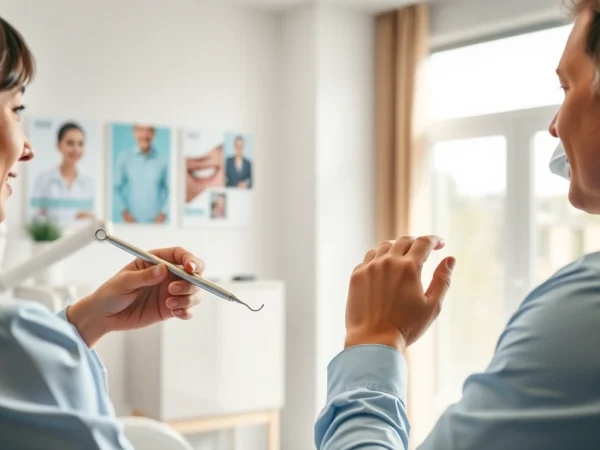Understanding Testosterone Replacement Therapy: Benefits, Risks, and Best Practices
Testosterone levels play a crucial role in the overall health and wellness of individuals, particularly for men. As people age, testosterone levels can decline, leading to a multitude of symptoms that may impact quality of life. Testosterone Replacement Therapy (TRT) has emerged as a viable solution for addressing these symptoms, but understanding its mechanisms, benefits, risks, and the process can often be daunting. This article delves into various aspects of Testosterone Replacement Therapy, providing a detailed exploration for those considering this treatment option.
What is Testosterone Replacement Therapy?
Definition and Purpose of Testosterone Replacement Therapy
Testosterone Replacement Therapy is a medical treatment designed to restore testosterone levels in men diagnosed with low testosterone, also known as hypogonadism. The therapy is implemented through various delivery methods, including injections, patches, gels, and pellets. The primary purpose of TRT is to alleviate symptoms associated with low testosterone, such as fatigue, low libido, depression, and loss of muscle mass. By restoring testosterone levels to an optimal range, many individuals experience significant improvements in their physical and emotional well-being.
Who is a Candidate for Testosterone Replacement Therapy?
Candidates for TRT typically include adult men experiencing clinical symptoms of low testosterone and having low testosterone levels confirmed by blood tests. Symptoms may encompass:
- Fatigue and low energy levels
- Reduced sex drive
- Depression or mood changes
- Loss of muscle mass and strength
- Decreased bone density
However, not everyone with low testosterone will qualify for therapy. It is essential for candidates to undergo a thorough evaluation by a healthcare professional to assess their suitability for TRT and to rule out other potential causes of their symptoms.
Common Forms of Testosterone Replacement Therapy
Testosterone Replacement Therapy can be administered in several forms, each offering unique advantages and considerations. The most common forms include:
- Injections: Injections of testosterone can be administered intramuscularly or subcutaneously, usually every one to three weeks.
- Testosterone Patches: Transdermal patches are applied to the skin daily, releasing testosterone into the bloodstream.
- Gels: Testosterone gels are applied daily to the skin, providing a steady absorption of the hormone.
- Pellets: Subcutaneous pellets containing testosterone are implanted under the skin and release testosterone over an extended period, usually three to six months.
Each method has its pros and cons, and the choice of delivery method often depends on personal preference and the recommendation of a healthcare provider.
Benefits of Testosterone Replacement Therapy
Improving Energy Levels and Mood
One of the most notable benefits of Testosterone Replacement Therapy is the potential to enhance energy levels. Many men report feeling more energized, focused, and motivated after starting therapy. Low testosterone levels are often linked to fatigue and mood disorders, including depression and anxiety. By restoring hormone levels, TRT can lead to improved mental health and a more positive outlook on life, significantly enhancing overall quality of life.
Enhancing Muscle Mass and Bone Density
Testosterone is vital for muscle growth and maintenance. Studies have consistently shown that men undergoing TRT experience increases in muscle mass and strength. This is particularly beneficial for older adults, who may be at risk for sarcopenia—a condition characterized by loss of muscle mass. Additionally, testosterone plays a critical role in bone health. Low testosterone is associated with decreased bone density, which can lead to osteoporosis and fractures. By restoring testosterone levels, individuals can improve bone density and potentially reduce the risk of fractures.
Boosting Sexual Health and Libido
A significant aspect of testosterone’s role in male health is its influence on sexual function. Low testosterone levels can lead to reduced libido, erectile dysfunction, and dissatisfaction with sexual performance. Testosterone Replacement Therapy has shown effectiveness in enhancing libido and improving erectile function in men suffering from low testosterone. The restoration of hormone levels can lead to a more fulfilling sexual life, benefiting both the individual and their partner.
Potential Risks and Side Effects of Testosterone Replacement Therapy
Cardiovascular Risks Associated with Testosterone Replacement Therapy
While TRT offers several benefits, it is not without potential risks. Some studies have suggested a link between testosterone therapy and cardiovascular issues, including an increased risk of heart attacks or strokes. The exact relationship between TRT and cardiovascular health remains debated, with some research indicating that properly managed testosterone treatment does not significantly increase cardiovascular risks. However, patients with existing heart conditions or risk factors should engage in thorough discussions with their healthcare providers regarding potential risks before beginning therapy.
Possible Hormonal Imbalances
Testosterone Replacement Therapy can sometimes lead to hormonal imbalances, notably an increase in estrogen levels in men. Elevated estrogen can lead to side effects such as gynecomastia (the growth of breast tissue in men) and fluid retention. Monitoring hormone levels during TRT is essential to mitigate these risks and ensure that hormone levels remain balanced throughout treatment.
Common Side Effects Experienced by Patients
Like any medical treatment, TRT can come with side effects. Common side effects include:
- Acne or oily skin
- Sleep apnea
- Increased red blood cell count (polycythemia)
- Hair loss or hair growth changes
- Changes in mood or increased aggression
Patients should monitor any side effects and communicate with their healthcare provider to adjust treatment plans as necessary to minimize discomfort or complications.
How to Get Started with Testosterone Replacement Therapy
Consultation and Initial Assessment for Testosterone Replacement Therapy
The first step in considering Testosterone Replacement Therapy is to seek a consultation with a qualified healthcare provider. This initial assessment typically involves:
- A detailed medical history review
- Physical examination
- Blood tests to measure testosterone levels
During this assessment, it is crucial for patients to discuss any symptoms they’ve been experiencing, as well as any existing health conditions that may impact their candidacy for TRT. This information will help the healthcare provider determine an appropriate treatment plan.
Monitoring and Adjusting Treatment Plans
Once therapy begins, regular follow-ups are essential to monitor testosterone levels, assess symptoms, and ensure that treatment is effective and safe. Blood tests will usually be conducted periodically to track testosterone levels, red blood cell counts, and hormone balance. It’s important for patients to communicate openly with their healthcare provider about their response to therapy and any side effects experienced, as adjustments to dosage or treatment methods may be necessary over time.
Lifestyle Changes to Complement Testosterone Replacement Therapy
In addition to medical intervention, making certain lifestyle changes can enhance the efficacy of Testosterone Replacement Therapy. These may include:
- Regular physical activity, focusing on strength training and cardiovascular exercises
- A balanced diet rich in healthy fats, lean proteins, and whole grains
- Managing stress through techniques like meditation or yoga
- Ensuring adequate sleep, as sleep is crucial for hormone regulation
By adopting these healthier lifestyle habits, individuals can maximize the benefits of TRT and improve overall health.
Long-term Considerations and Follow-up for Testosterone Replacement Therapy
Understanding the Lifelong Commitment to Testosterone Replacement Therapy
One critical aspect of Testosterone Replacement Therapy is recognizing that it is typically a lifelong commitment. For many men, discontinuing treatment will result in testosterone levels dropping back to their prior low state, along with the return of associated symptoms. This reality necessitates an informed decision from patients regarding their long-term health goals and willingness to remain in treatment.
Evaluating the Effectiveness of Your Treatment
Evaluating the effectiveness of Testosterone Replacement Therapy involves not only monitoring testosterone levels but also assessing improvements in symptoms. Patients should work closely with their healthcare provider to establish metrics that define success in therapy, such as energy levels, mood enhancement, sexual health, and physical changes like muscle gain. Regular reassessment will ensure that the treatment remains beneficial.
Potential Alternatives to Testosterone Replacement Therapy
For some individuals, Testosterone Replacement Therapy may not be the best option, whether due to medical contraindications, side effects, or personal preferences. Alternatives may include:
- Addressing underlying health conditions that may be contributing to low testosterone
- Making lifestyle changes to promote natural testosterone production, such as exercise and diet modifications
- Exploring other medical treatments or supplements offered by healthcare professionals
Regardless of the path taken, it is essential for individuals to consult with healthcare providers to devise a personalized approach that suits their unique health backgrounds and goals.
Overall, Testosterone Replacement Therapy can serve as a transformative option for individuals suffering from low testosterone levels. When approached with careful consideration, proper management, and complementary lifestyle changes, TRT has the potential to significantly enhance quality of life. For those looking for further information or to discuss personal circumstances regarding Testosterone Replacement Therapy, it is advisable to consult a medical professional skilled in endocrinology or hormone therapy.










